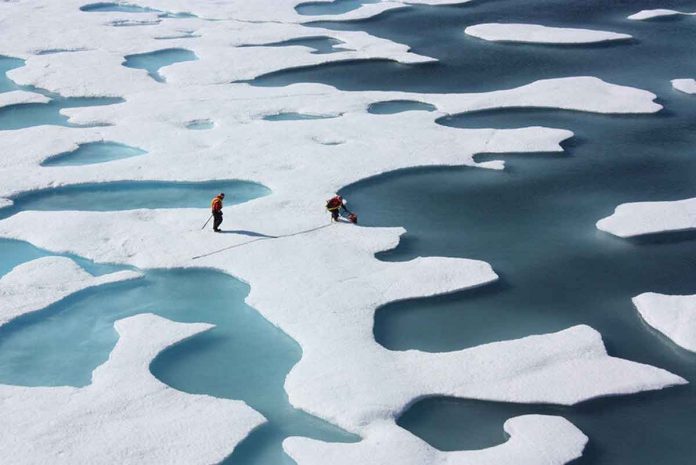The Arctic has lost about one-third of its winter sea ice volume, over the past two decades. It is largely due to a decline in sea ice that persists over several years. It is called multiyear ice and this is according to a new study. The study find that sea ice is thinner than previously thought.
Seasonal sea ice melts completely each summer rather than accumulating over years. It is replacing thicker, multiyear ice and driving sea ice thinning trends.
Arctic sea ice snow depth is estimated from a combination of lidar (ICESat-2) and radar (CryoSat-2) data. Scientists used these estimates of snow depth and the height of sea ice exposed above water. Scientists find multiyear Arctic Sea ice has lost 16% of its winter volume or approximately half a meter of thickness, in the three years since the launch of ICESat-2.
The study was published in the AGU journal Geophysical Research Letters.
Scientists make satellite estimates of sea-ice thickness using snow depth and the height of the floating ice above the sea surface. Snow can weigh ice down. It can change how ice floats in the ocean. The new study compared ice thickness using new snow depths from satellite radar and lidar to previous ice thickness and snow depth estimates from climate records.
Scientists find using climatology-based estimates of snow depth can result in overestimating sea-ice thickness by up to 20% or up to 0.2 meters. The study used an 18-year record of sea-ice observations from ICESat and the newer ICESat-2 and CryoSat-2 satellites to capture monthly changes in Arctic sea-ice thickness and volume.
This provided them the context for sea ice thickness estimates from 2018 to 2021. The 18-year record showed a loss of about 6,000 cubic kilometers of winter ice volume. It was largely driven by the switch from predominantly multiyear ice to thinner and seasonal sea ice.

